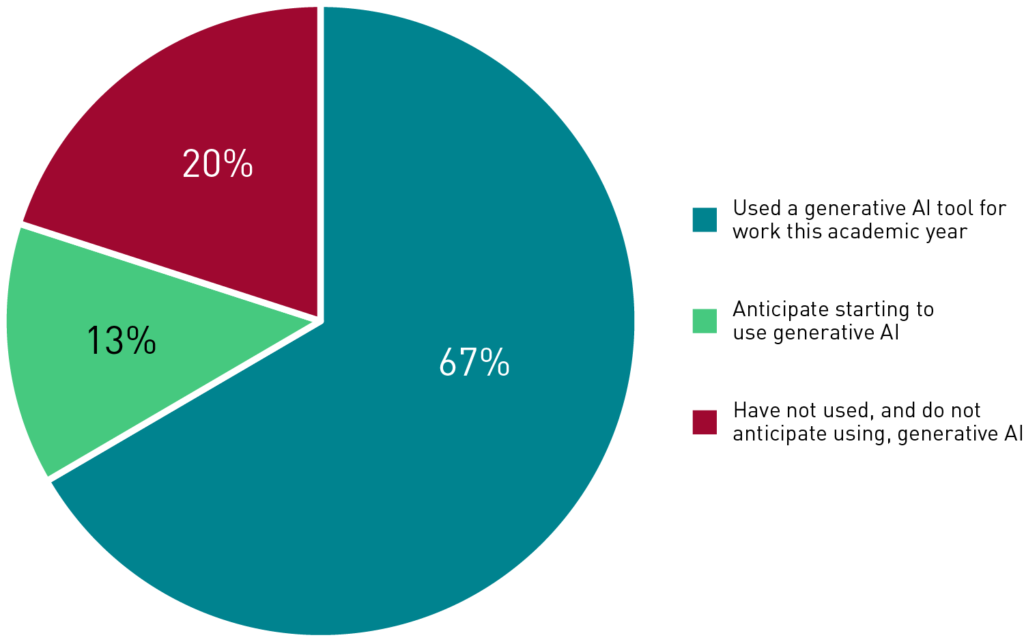As an AI EdTech startup, LearnWise is excited to explore the positive aspects of incorporating AI technologies in the education landscape. The recent EDUCAUSE QuickPoll report sheds light on the adoption and adaptation of generative AI in higher education, revealing promising attitudes and practices in the sector [1].
The Challenge
The rise of generative AI technologies in higher education poses questions about their long-term implications and how institutions will support and guide their use [2]. This report delves into these questions and examines the future landscape of AI in education.
The Positive Outlook
Attitudes toward generative AI have improved, with 67% of respondents now expressing optimism about its integration in higher education [1]. This optimism paves the way for increased adoption and greater institutional support. By identifying suitable use cases and establishing appropriate staffing and governance structures, institutions can harness the benefits of AI technologies in their operations.

The Data:
- Appreciating Generative AI As generative AI technologies become more widely adopted, concerns and uncertainties may be alleviated, and users may embrace them more positively [1]. Those who have used generative AI tend to be more optimistic about its benefits, suggesting that experience plays a significant role in shaping attitudes.
- Integrating Generative AI Generative AI technologies are increasingly being adopted in day-to-day work across higher education, with 67% of respondents using them in the current academic year and 13% planning to use them in the future [1]. Most respondents are satisfied with their experience and plan to continue using generative AI. Usage tends to cluster around four areas: Dreaming, Drudgery, Design, and Development, with respondents describing AI technologies as assisting rather than replacing human activity [1].
- Supporting Generative AI The report identifies gaps in formal responsibilities for adopting and using generative AI in higher education, emphasizing the need for clear roles and collaborative efforts to ensure effective integration [1]. Senior-level, specialized, and emergent focus are predominant in current AI-related responsibilities, which include developing policies, guidelines, strategies, and training resources.
Promising Practices
https://LearnWise.ai encourages individuals to experiment with generative AI and explore its potential benefits for their work and institutions. By looking for smaller, easier use cases as starting points, individuals and institutions can gradually and safely integrate AI technologies into their operations [1].
In conclusion, LearnWise sees the increasing adoption of generative AI technologies as a positive trend in higher education. By addressing challenges and embracing promising practices, institutions can effectively leverage AI to enhance their operations and support their communities.
References
[1] EDUCAUSE QuickPoll Results: Adopting and Adapting to Generative AI in Higher Ed Tech
[2] Nicole Muscanell and Jenay Robert, “EDUCAUSE QuickPoll Results: Did ChatGPT Write This Report?” EDUCAUSE Review, February 14, 2023.





















